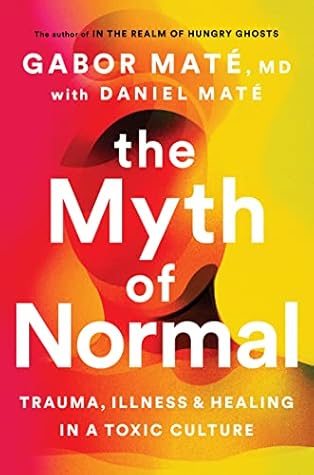More on this book
Community
Kindle Notes & Highlights
by
Gabor Maté
Started reading
December 14, 2024
What is lost is well described by the Polish-born writer[*] Eva Hoffman as “nothing more or less than the experience of experience itself. And what is that? Perhaps something like the capacity to enter into the textures or sensations of the moment; to relax enough so as to give oneself over to the rhythms of an episode or a personal encounter, to follow the thread of feeling or thought without knowing where it leads, or to pause long enough for reflection or contemplation.”[16] Ultimately, what we are distracted from is living.
titled It Didn’t Start with You: How Inherited Family Trauma Shapes Who We Are and How to End the Cycle.
“An unexamined life is not worth living. As long as one doesn’t examine oneself, one is completely subject to whatever one is wired to do, but once you become aware that you have choices, you can exercise those choices.”
Unless we can measure something, science won’t concede it exists, which is why science refuses to deal with such “nonthings” as the emotions, the mind, the soul, or the spirit. —Candace Pert, Ph.D., Molecules of Emotion
Caroline’s outburst at the unsuspecting physician was out of character. All her life she had fit the profile of the nice person who avoids confrontation. “My way was always being the caretaker, being needed, always coming to somebody’s rescue, a lot of the time to my own detriment,” she told me. “I never wanted to have conflict with anyone. And I always had to be in charge, making sure everything was okay.” Caroline had exhibited what has been called “superautonomous self-sufficiency,”[*] which means exactly what it sounds like: an exaggerated and outsize aversion to asking anything of anyone.
...more
“Somehow, nurses had an intuitive understanding that this ‘niceness’ was deleterious. [This] view now is being supported by research.”[4]
“I’m afraid this person has ALS, she is too nice,” they would jot on the patient’s file. Or, “This person cannot have ALS, he is not nice enough.”
In previous research, NK cell activity was reduced in healthy young people in response to even relatively minor stresses—especially for those who were emotionally


